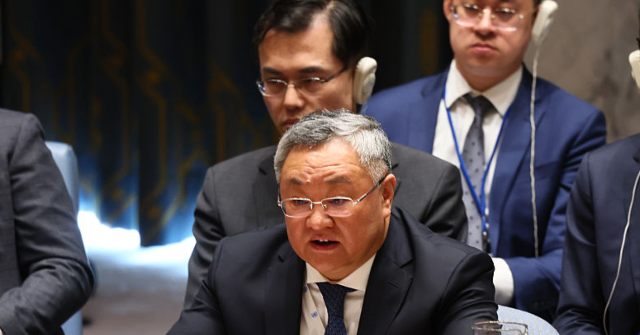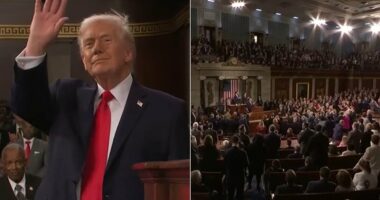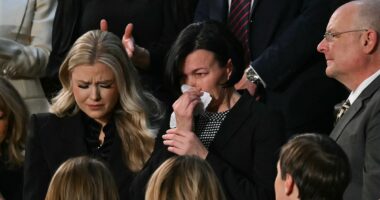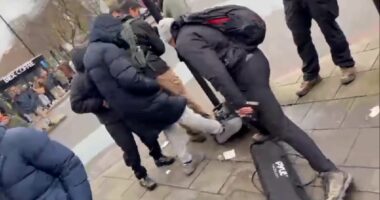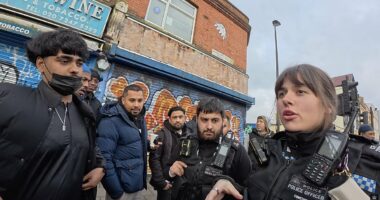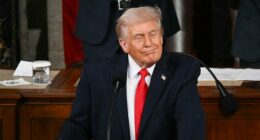Share this @internewscast.com
The U.N. General Assembly elected a host of regimes with records of human rights abuses to the Economic and Social Council (ECOSOC) — including the genocidal state of China — on Wednesday, the 36th anniversary of the Tiananmen Square massacre.
China won a seat on ECOSOC alongside Russia, which has ravaged neighboring Ukraine with a full-scale invasion for three years; the authoritarian Islamist government of Turkey; and the African authoritarian regimes of Burundi and Chad, according to the monitor group U.N. Watch.
“Russia won 115 votes, or 61% of those voting in the UN General Assembly ballot yesterday,” U.N. Watch documented. “Turkey won 174 votes (92%); China won 180 votes (95%); Chad won 183 votes (96%); Burundi won 184 votes (97%). Another 13 countries were also elected, including Lebanon, Mozambique, and Norway.”
ECOSOC is one of two United Nations bodies tasked with overseeing the implementation of critical U.N. covenants on human rights. Its mandate is to ensure the implementation of the International Covenant on Economic, Social, and Cultural Rights (ICESCR). Upon the establishment of the United Nations, many parties involved considered the founding U.N. Charter to not properly address the issue of human rights. The member states — the victors following World War II — agreed that a new document was necessary, but not on which rights constitute fundamental human rights. The United States and its allies backed the creation of an international legal document to protect the freedoms of expression, religion, political self-determination, and other fundamental civil rights routinely and egregiously violated by the Soviet Union. The USSR, in turn, sought to include economic “rights” in the document. The result was the drafting of two covenants: ICESCR and the International Covenant on Civil and Political Rights (ICCPR). The body in charge of implementing the latter is the Human Rights Committee.
The U.N. describes ECOSOC as “the central platform for fostering debate and innovative thinking, forging consensus on ways forward, and coordinating efforts to achieve internationally agreed goals.”
U.N. Watch, which regularly documents U.N. actions contrary to or actively harmful for the cause of human rights, lamented the election of several major human rights violators to the council.
“It’s like putting Dracula in charge of the blood bank,” Executive Director Hillel Neuer lamented. “Electing repressive regimes like China, Russia, and Turkey to a key UN council, which has the power to expel human rights groups from the UN, is a moral outrage, and shame on our democracies who were complicit.”
“Today’s election diminishes the credibility of the United Nations human rights system and casts a shadow upon the reputation of the organization as a whole,” he added.
Granting the Chinese Communist Party a platform at a body intended to protect human rights was particularly unfortunate on Wednesday as the world marked the extermination of as many as 10,000 people for being associated with a peaceful, pro-democratic movement in Tiananmen Square in 1989. Following the collapse of the Soviet Union, Chinese activists, many of them teen students, took the streets of Beijing demanding the right to vote and have a say in the nation’s politics. The Communist Party responded by deploying the military to kill them. Horrific images of Beijing’s streets filled with tanks and soldiers killing unarmed youths emerged after the order was given on June 4 to crush the protests. Evidence from the time suggests the Chinese government killed as many as 10,000 people in the following week.
Far from recognizing and apologizing for the slaughter, the Chinese government has endeavored to erase it from memory and rarely comments on it. Chinese state media made a rare departure from this silence in 2019, the 30th anniversary of the murders, to justify them and condemn human rights activists for keeping the memory of those killed alive.
The Global Times government newspaper compared the killings to a “vaccination” to “greatly increase China’s immunity against any major political turmoil in the future.”
“That incident was a political turbulence and the central government took measures to stop the turbulence which is a correct policy,” then-Foreign Minister Gen. Wei Fenghe said at the time, similarly justifying the atrocity. “The 30 years have proven that as China has undergone major changes, China has enjoyed stability and development.”
This year, on Wednesday, the Chinese government went back to not addressing the situation at all. Multiple reports out of China indicated, however, that regime thugs harassed the living relatives of those killed in an attempt to silence them. In Hong Kong, once host to the largest vigil to honor Tiananmen Square victims in the world, regime-controlled police occupied the site of the old vigil, Victoria Park, and whisked away anyone suspected of potentially commemorating the anniversary in public.
No evidence suggests the U.N. General Assembly addressed the Tiananmen Square massacre during the vote on Wednesday. U.N. agencies have repeatedly accused China of rampant human rights violations independent of that incident, however, most recently in a report on state-sponsored slavery in the country. In February, the International Labor Organization (ILO), the U.N. agency tasked with workers’ rights, published a report finding that the Chinese Communist Party had expanded its program enslaving Uyghurs, Tibetans, and other non-Han communities, forcing them into agricultural labor or in factories producing “green” technology such as solar panels.
Follow Frances Martel on Facebook and Twitter.
